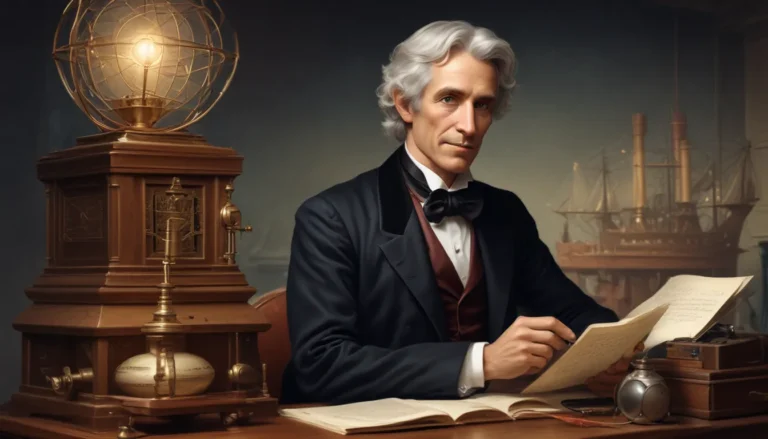The images in our articles may not match the content exactly. They are used to grab your attention, not to show the exact details in the text. The images complement the text but do not replace it.
In the realms of philosophy and political theory, one name stands out prominently – Hannah Arendt. A trailblazer in the intellectual landscape of the 20th century, Arendt’s work continues to challenge and shape our perceptions of power, politics, and human nature. From her thought-provoking insights on totalitarianism to her groundbreaking concept of the “banality of evil,” Arendt’s writings have left an indelible mark on the field, inspiring critical thinking and the pursuit of a better society.
Join us on a journey into the captivating life and mind of Hannah Arendt as we uncover 16 mind-blowing facts that illuminate her unique perspective and enduring legacy. From her early years in Germany to her exile and rise as a renowned thinker, each fact offers a glimpse into the remarkable journey of this extraordinary woman.
Key Takeaways:
- Hannah Arendt’s concept of the “banality of evil” challenges our understanding of human behavior, suggesting that ordinary individuals can commit great acts of evil without demonstrating exceptional malice.
- Arendt’s legacy as a political theorist and philosopher continues to inspire critical thinking and the pursuit of a better society, embodying intellectual bravery and a fearless quest for truth.
The Origin of the Concept of the “Banality of Evil”
Hannah Arendt’s theory on the “banality of evil,” introduced in her work “Eichmann in Jerusalem: A Report on the Banality of Evil,” delves into the notion that ordinary individuals can carry out heinous acts without overt malice or hatred, challenging deeply ingrained beliefs about evil and morality.
Influential Political Theorist
Arendt’s exploration of power, totalitarianism, and the nature of authority has had a profound impact on political philosophy, sparking widespread study and debate in academic circles.
Life in Exile
Forced to flee Germany due to her Jewish heritage and opposition to the Nazi regime, Hannah Arendt sought refuge in various countries before eventually securing American citizenship in 1951, marking a turning point in her life and career.
The Impact of “The Human Condition”
In her seminal work “The Human Condition,” Arendt delves into the essence of human existence and the prerequisites for a meaningful life, inviting readers to ponder on themes such as labor, work, and action that define our daily experiences.
Critique of Modernity
Arendt’s critical assessment of modern society’s focus on consumerism, bureaucracy, and the erosion of public and political life underscores her belief in the impediments these factors pose to individual freedom and the realization of a truly democratic society.
Controversy Surrounding “Eichmann in Jerusalem”
The publication of “Eichmann in Jerusalem” stirred intense debate over Arendt’s portrayal of Adolf Eichmann as an ordinary bureaucrat rather than a malevolent figure, sparking both praise and criticism for her unconventional perspective.
Defense of Political Action
Central to Arendt’s philosophy is the emphasis on political action and citizen engagement in public affairs as vital components for the maintenance of a democratic society, underscoring the importance of individual participation in shaping collective destinies.
Critique of Totalitarianism
In her meticulous analysis in “The Origins of Totalitarianism,” Arendt dissects the emergence of totalitarian regimes in the 20th century, unraveling the underlying conditions that paved the way for their rise and the devastating consequences they wrought on society.
Educational Background
Steeped in philosophical teachings from eminent figures such as Martin Heidegger and Karl Jaspers, Arendt’s academic pursuits laid the groundwork for her future intellectual endeavors and contributions to political theory.
Pioneer of Political Theory
Hannah Arendt’s innovative perspectives on power, authority, and human nature have solidified her status as a pioneering thinker whose ideas continue to shape contemporary political discourse and inspire critical reflection.
Exploration of the Public and Private Spheres
Arendt’s examination of the distinction between the public and private realms illuminates their profound implications for individual freedom and political engagement, stressing the indispensable role of the public sphere in fostering democratic processes.
Analysis of “The Vita Activa”
Delving into the essence of human existence, Arendt’s exploration of labor, work, and action in “The Vita Activa” sheds light on the intrinsic meanings and consequences of these fundamental activities that mold our experiences and identities.
Relationship with Martin Heidegger
Despite a complex association with her former teacher, Martin Heidegger, Hannah Arendt’s personal and intellectual connection with the renowned philosopher experienced strains due to Heidegger’s affiliation with the Nazi Party, embodying the nuances of human relationships and ideological conflicts.
Impact on Feminism
Arendt’s profound insights into power dynamics, the public sphere, and women’s roles in society have significantly influenced feminist theory and feminist political thought, serving as a fount of inspiration for scholars and activists in their pursuit of gender equality and social justice.
Legacy and Enduring Influence
Bearing witness to Hannah Arendt’s enduring legacy in political theory and philosophy, her profound impact on scholarly discourse continues to catalyze critical analyses of the political landscape and the aspiration for a more just and equitable society.
Intellectual Bravery
Characterized by intellectual bravery and a resolute commitment to challenging established norms and ideologies, Hannah Arendt’s relentless pursuit of truth and understanding of the complexities of the human condition affirm her status as a towering figure in intellectual history.
In conclusion, Hannah Arendt’s indelible mark on philosophy and political theory reverberates through her groundbreaking ideas and unwavering pursuit of truth and justice. Her legacy serves as a beacon of intellectual enlightenment, inspiring generations to engage critically with the intricacies of the modern world and strive towards a more equitable and democratic society.
FAQs
Q: Who was Hannah Arendt?
A: Hannah Arendt was a distinguished philosopher, political theorist, and writer known for her profound insights on power, totalitarianism, and human nature.
Q: What are some of Hannah Arendt’s most important ideas?
A: Hannah Arendt’s key concepts include the “banality of evil” and the significance of individual action in fostering a thriving democracy.
Q: What is the significance of Hannah Arendt’s work today?
A: Arendt’s work remains influential in fields such as political theory and philosophy, offering profound insights into power dynamics and totalitarianism.
Q: How did Hannah Arendt’s personal experiences influence her work?
A: Arendt’s personal experiences as a Jewish woman fleeing Nazi Germany during World War II shaped her perspectives on totalitarianism and the importance of individual agency.
Q: Where can I read more of Hannah Arendt’s writings?
A: Hannah Arendt’s works, including “The Origins of Totalitarianism” and “The Human Condition,” are widely available for deeper exploration of her impactful ideas and philosophies.
Embark on a journey of intellectual discovery with Hannah Arendt’s profound insights and transformative ideas, illuminating our understanding of the world and our place within it. Explore the complexities of power, democracy, and human nature through the lens of a visionary thinker whose legacy continues to resonate in today’s society, urging us to question, reflect, and envision a better tomorrow.






